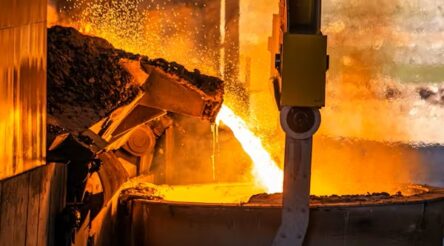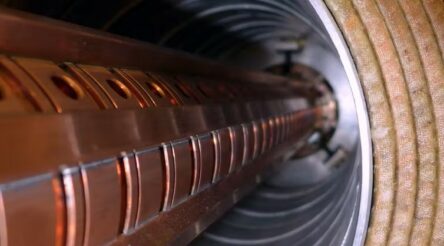A Future Made in Australia in a world of cheap imports – by Allyn Beard

The Future Made in Australia is great if you are in one of the chosen new high growth sectors that are its focus. But what of existing, centuries old manufacturing value chains assailed by cheap online retailing? By Allyn Beard.
Cheap, imported and mass-produced goods are seemingly taking over Australia, with the likes of online retailers Shein and Temu on the rise.
But despite the booming offshore marketplace, data confirms that Australians still value locally-made products.
In fact, seven in ten consumers have been actively trying to buy more homegrown products in the last 12 months, while four in ten are willing to spend more on Australian Made goods — even despite the increased cost of living.
The government’s highly anticipated Future Made in Australia Act is starting conversations around the importance of a strong sovereign supply chain that fosters innovation to protect the economy and job market.
But, is the rhetoric enough to shift the dial on locally made and owned when it comes to consumer purchasing decisions?
Quality over quantity
Large-scale offshore manufacturing is becoming more prevalent, spearheaded by consumers, who in this tight economy, simply want more goods for less money.
Shein’s mammoth rise to fame over the past couple of years is a testament to this, with profits exceeding over 300 percent in the last year alone.
Temu is the newest kid on the block, also wanting a share of the fast fashion pie and now boasts the title of 2023’s most downloaded app globally.
While these platforms offer low prices, they severely under-deliver on quality.
It’s this focus on quality that makes Australian Made products so unique, particularly when it comes to big-ticket purchases such as furniture or electronic devices.
Consumers want reassurance that the goods they’re purchasing not only address their immediate needs but will continue to perform for years to come.
A good night's sleep
My family company which makes mattresses is an example.
At A. H. Beard, we’ve heard countless times that one of the leading indicators of a consumer purchasing a mattress is that it’s durable and is built to last for the long term.
Offshore production can offer businesses competitive pricing and broader distribution which is fine if your goal is to become a commodity brand, but building a long-term business with highly valued products requires more consideration.
Being locally made is a hugely important part of our success at A. H. Beard, and means we aren’t forced to compromise on the quality of componentry, manufacturing and the partners we choose to work with.
This has held us in high regard, both in Australia and our export markets.
Even while consumers are doing it tough due to the cost of living crisis, they understand the long-term value of purchasing Australian Made, particularly for bigger ticket purchases.
This, coupled with the authenticity we know consumers crave and a sense of pride in knowing that their purchases are locally made, is why we need our policymakers to champion existing, sustainable supply chains across our manufacturing sector.
The value of staying close to home
Domestic manufacturing is key to the livelihoods of many Australians, ranking as our nation's highest employment industry and significantly driving a huge portion of our GDP.
I’m proud to say we’ve been a locally made and manufactured business for 125 years and remaining close to home is an extension of our family-driven values, allowing us to support local communities and economies.
The family, which we also see as our workforce, has been integral to our success and I have absolutely no doubt they’ll be the driving force behind our future success too.
Beyond the economic benefits, onshore manufacturing creates a smoother and more efficient supply chain too.
All aspects of our in-house production — from engineering to the final product — are housed under one roof.
Maintaining this control with onshore manufacturing has ensured that mattresses are made-to-order and not made to stock.
We have a unique ability to quickly update and change our processes to maintain efficiency and reduce the risk of overproduction and waste.
As a registered ‘Australian Made’ company, we source materials from premium homegrown producers — such as the ethical sourcing of animal-based textiles like wool, inspection of raw materials and testing of components.
With proximity to all aspects of our supply chain we are able to work with suppliers that understand Australia’s environment, all while reducing transit.
This local sourcing lets us prove a product’s quality and provenance across the supply chain, allowing for sustainability credentials and transparency.
A future made in Australia
While it can be tempting to turn to cheaper, offshore offerings, it comes at a hefty cost in the form of poor quality, opaque supply chains and often overlooked sustainability principles and ethics.
Australia has long been seen as a clean, premium and environmentally friendly manufacturing industry and recent data shows it’s this perception that is driving purchase decisions, both locally and globally.
To maintain this position, Australian Made manufacturing requires the attention of our policymakers to ensure onshore processes remain an integral and valued part of the economy.
Only with this support will we ensure that the industry continues to prosper for generations to come.
Allyn Beard is Director of family bed manufacturer A.H. Beard
Picture: Allyn Beard
@aumanufacturing Sections
Analysis and Commentary Awards casino reviews Defence Gambling Manufacturing News Online Casino Podcast Technology Videos





